
Why the Five & One?
This week we have a twist on our usual format. Normally, we deliver 5 smart takeaways from the world of research, policy, health, wellness, and trends — +1 bonus topic just for you.
Because our team was recently in Washington, DC for a Congressional roundtable, we want to give you the behind-the-scenes view at what it looks like when women’s health —- our pain, our frustrations, our persistence —- brings people together to really listen. Consider these 5 takeaways from “The Hill” +1 reason to feel hope at a moment in time where it feels impossible that we can actually come together.
We also want to let you know that for the time being, The Five & One will be coming to your inbox every other week. Our priority is helping more people understand the systems failures and root causes underneath their personal healthcare experiences, and that hasn’t changed. But as we move closer to launching our stealth initiative, our team needs to focus our energy on the work that will expand our reach and impact. Think of this as us pressing forward, not pulling back. We appreciate your understanding, and look forward to coming back to your inboxes every week on the other side of launch.
You’re receiving this because you’re part of our community — as a Member or a Five & One subscriber. We’re building a $900M funding engine for women’s health, making it mainstream and recruiting our first 1,000 members in stealth.
Not a member yet? Want to know more? Now’s the time to join us.
We’re always learning about the women’s health system — even after decades of working in it. If we miss something or misspeak below, please reply and let us know so we can correct it in our next issue.
THIS WEEK
Top 5 Takeaways from the Women’s Health Research Roundtable
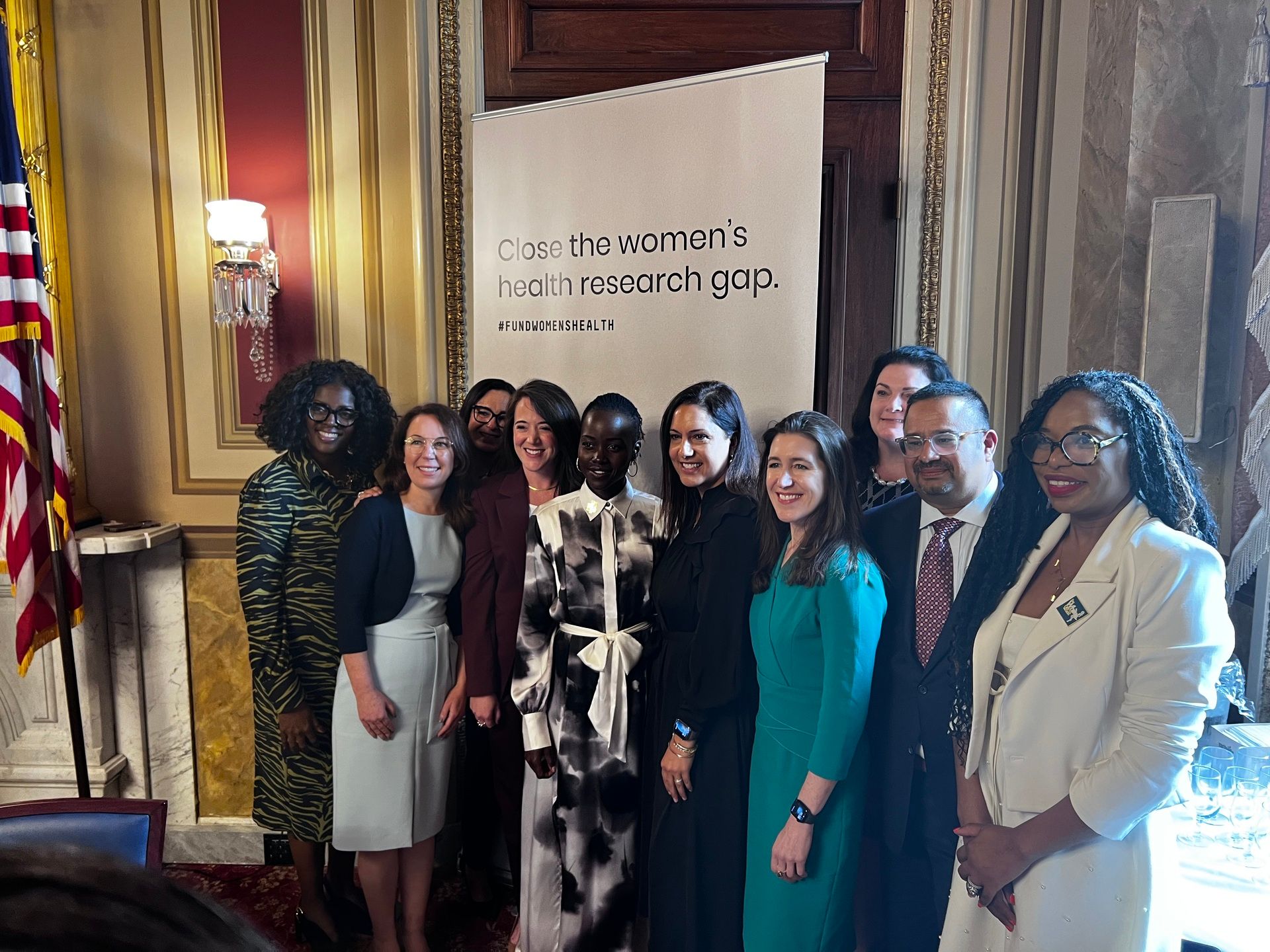
Photo taken by: Jodi Neuhauser
At last week’s Women’s Health Research Roundtable, hosted by The Society for Women's Health Research and Perelel, members of Congress, women’s health advocates, and storytellers came together to do something rare in Washington: tell the truth about the cost of neglecting women’s health. What emerged was both sobering and galvanizing—a reminder of why our work is urgent, and how we can channel the momentum into real change.
Here are the five takeaways that stood out most:
01. Women’s Health Is a Foundational Investment, Not a Special Interest
Actress and Advocate, Lupita Nyong’o distilled the stakes:
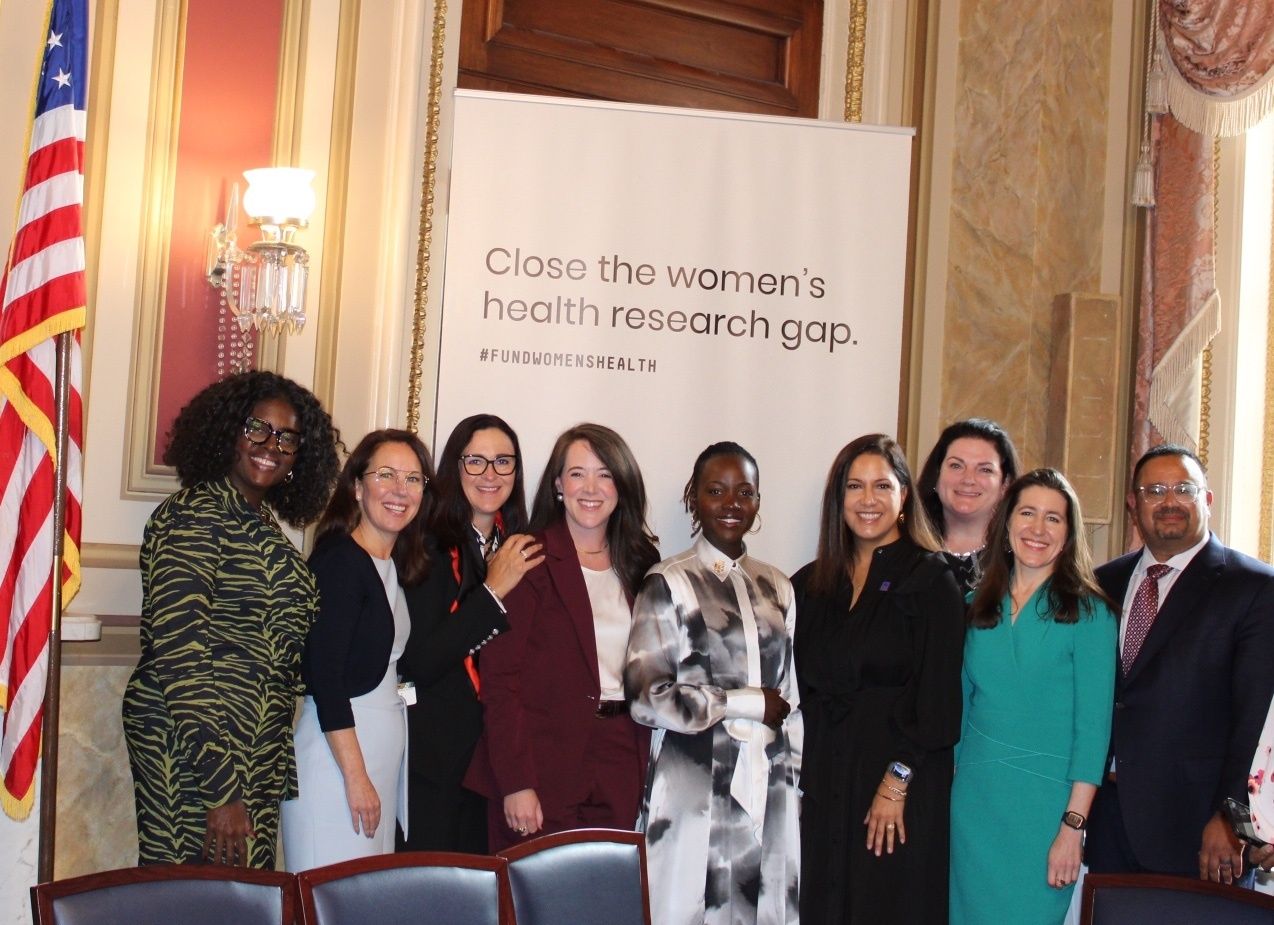
Photo taken by: Society for Women’s Health Research
“Our budget is our moral document. It is time to make it reflect our highest aspirations rather than our historical blind spots. Women’s health is not a special interest. It is a foundational investment in our nation’s well-being and economic strength.”
The economic cost of neglect is staggering—over $1 trillion annually in lost productivity and health costs globally. But the human cost is greater: unnecessary deaths, preventable suffering, and generations of women told their pain is normal.
02. Stories Drive Policy, Not Just Statistics
From Senator Angela Alsobrooks’ (D-MD), IVF and breast cancer journey, to Lupita Nyong’o’s devastating experience with uterine fibroids, to Representative Ayanna Pressley’s (D-MA) account of managing fibroids while serving as a city councillor, the throughline was clear: statistics can help us understand the scope of a problem, but our stories give the numbers gravity.
Pressley put it powerfully:
“Shame is such a normalized experience for women—shame for fibroids, for pregnancy loss, for alopecia, for menopause. Today we’re saying no to the suffering and the shame, but yes to research and to change.”
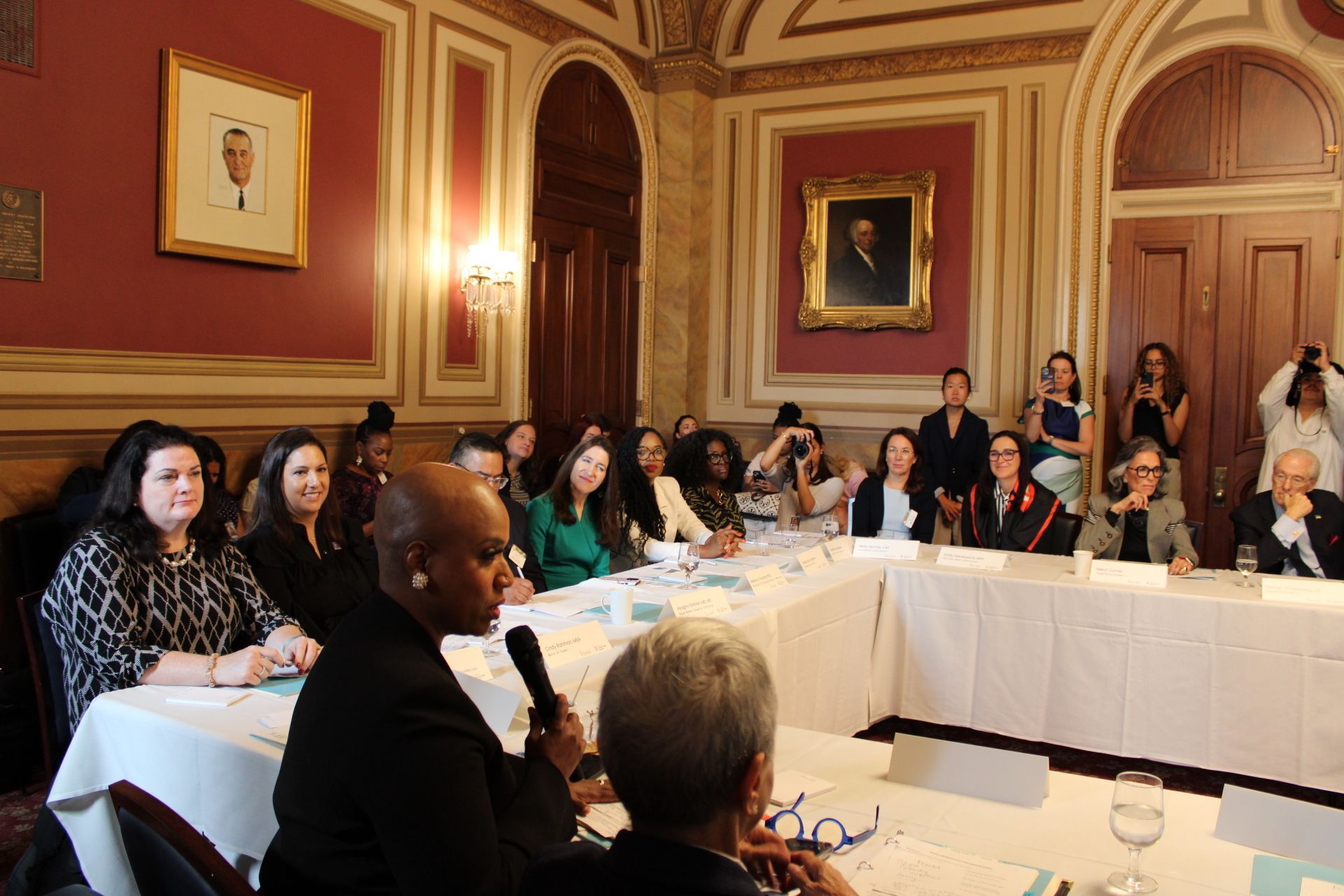
Photo taken by: Society of Women’s Health Research
Policy can follow visibility, but it requires people coming together around these stories and applying pressure in great numbers. It starts with removing the shame from our stories.
03. Bipartisan Urgency Is Real and Possible
In a polarized political climate, it was striking to hear leaders across the aisle echo the same message: women’s health must be a national priority.
Representative Juan Ciscomani (R-AZ) spoke as both a policymaker and a father of three daughters:
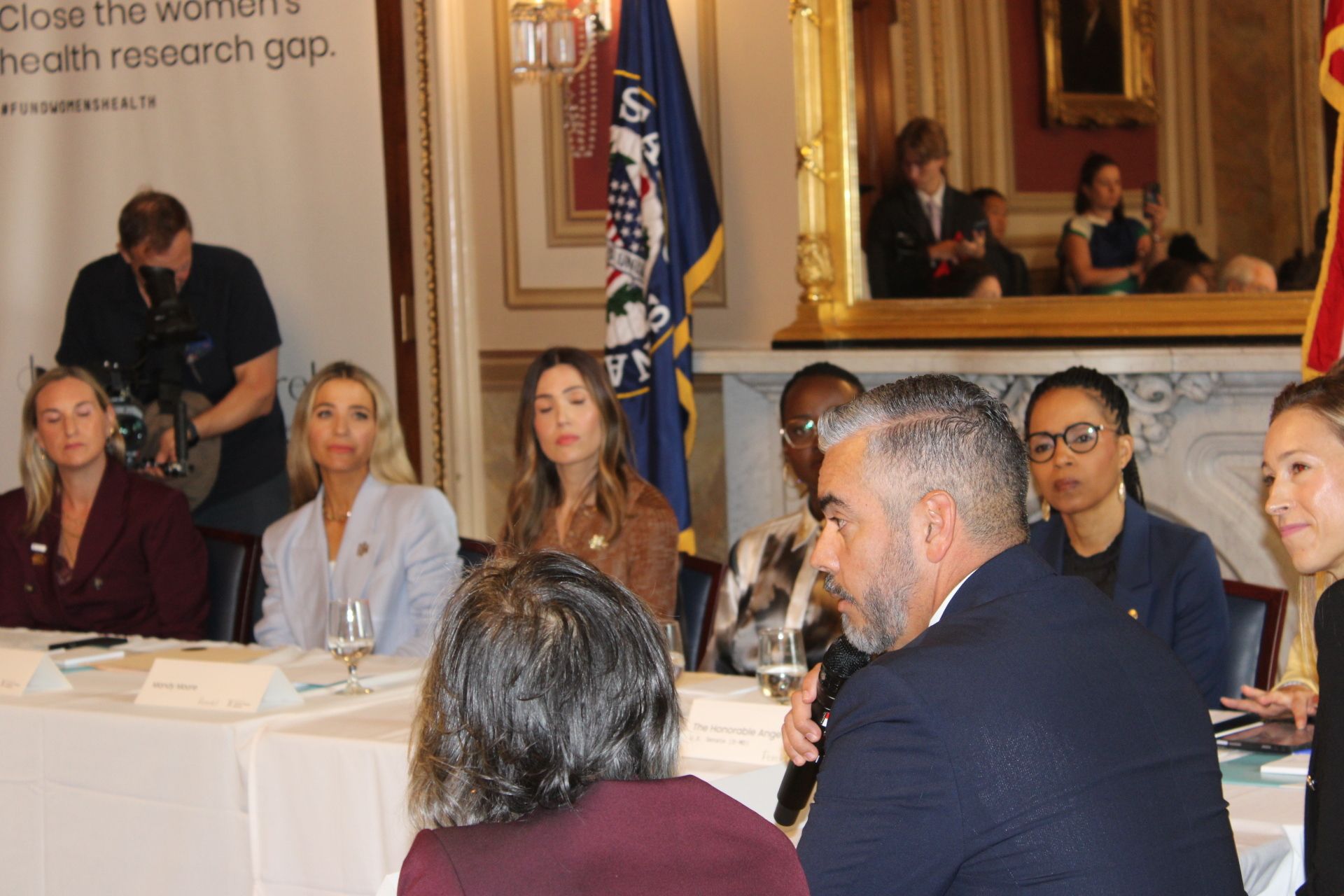
Photo taken by: Society for Women’s Health Research
“I don’t believe this is about one party. I represent a district that is one-third Republican, one-third Democrat, and one-third Independent. Working across the aisle is the only way to get this done. You have my commitment to keep fighting for women’s health—for my daughters and for future generations.”
This sentiment was echoed by colleagues on both sides of the aisle who emphasized that women’s health transcends ideology. It’s about dignity, equity, and opportunity for half the nation.
04. The Research Gap Has Life-or-Death Consequences
Actress and Advocate, Mandy Moore spoke to what too many women already know:
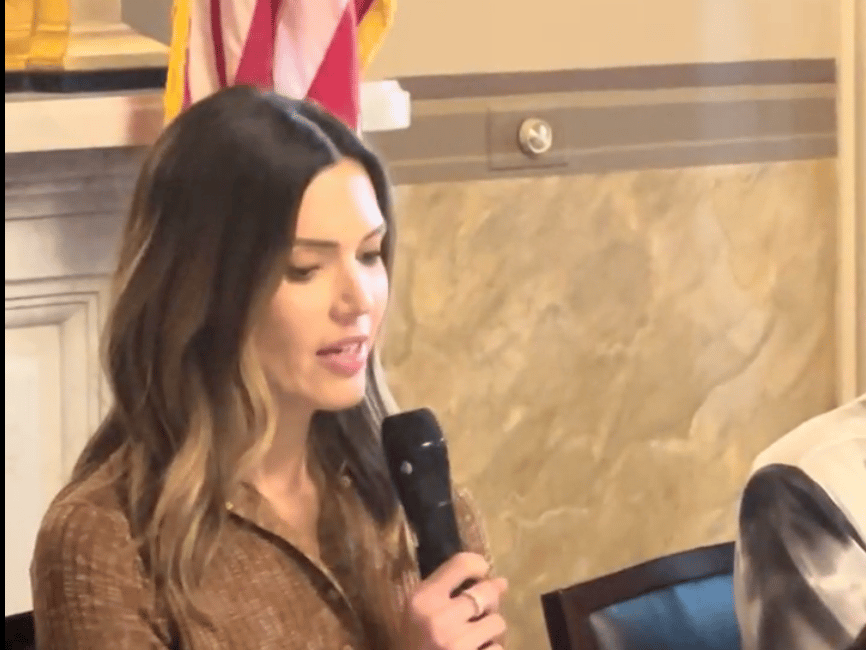
Photo taken by: Jodi Neuhauser
“[Women are] Misdiagnosed or left without answers—not because our doctors don’t care, but because the research simply doesn’t exist to guide them.”
Representative Debbie Wasserman Schultz (D-FL) added that bias and inequity shape what gets studied:
“Illness doesn’t care who you are or where you’re from. But bias and inequity exist in how we invest in research and discovery. Women are more than half our population, yet only about 8% of NIH research dollars go to women’s health.”
The result? Women live 25% more of their lives in poor health than men and are diagnosed later for more than 700 diseases. Research is the first unlock that reverses these gaps.
05. Representation Shapes Outcomes
Several lawmakers reminded us that research priorities and health outcomes are inseparable from who holds power. Representative Julia Letlow (R-LA):
“Let’s encourage more women to run for office. I can’t tell you how many times I’ve shown up and been the only woman in the room. We have to change that. That will affect change and make this world a better place for our girls, for the future generation.”
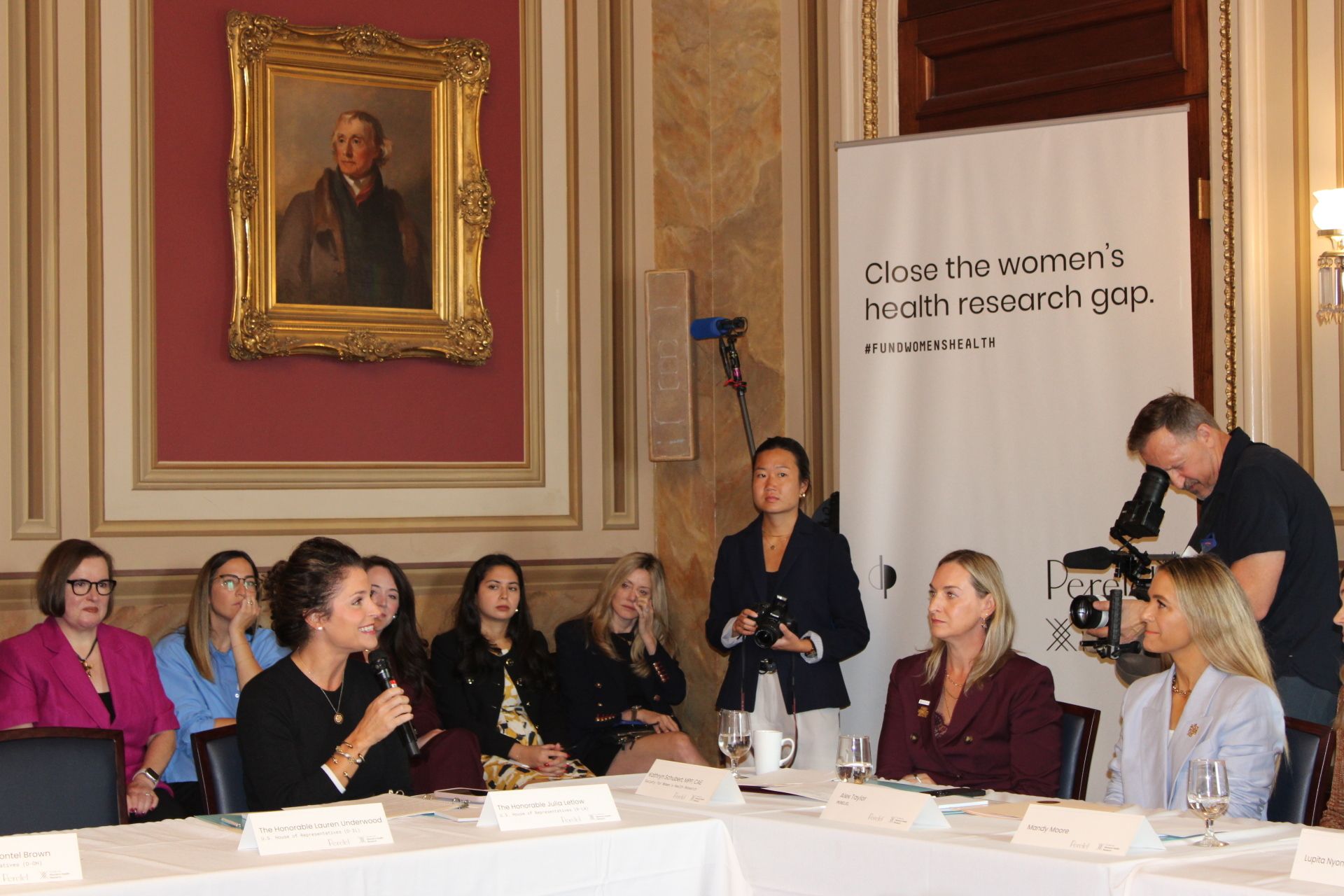
Photo taken by: Society for Women’s Health Research
Representation also extends beyond politics to clinical trials, research leadership, medical education and in the delivery of care. Without women in the room the cycle of structural neglect continues.
Moving Forward Together
The roundtable revealed both the depth of the crisis and the breadth of resolve. From members of Congress across parties, to advocates and cultural leaders like Mandy Moore and Lupita Nyong’o, the message was consistent: women deserve better.
As we move towards our public launch and consider our role in this growing movement, we feel more urgency than ever to turn these calls into coordinated action. That means organizing the “army” Rep. Watson Coleman (D-NJ) called for. It means sustaining the drumbeat of stories, data, and accountability. And it means refusing to let women’s health remain in the shadows.
Because when women are healthy, families, communities, and economies thrive. And when women’s health research is fully funded and prioritized, we all win. Days like these make us feel like when we have each other’s backs change is within our reach.